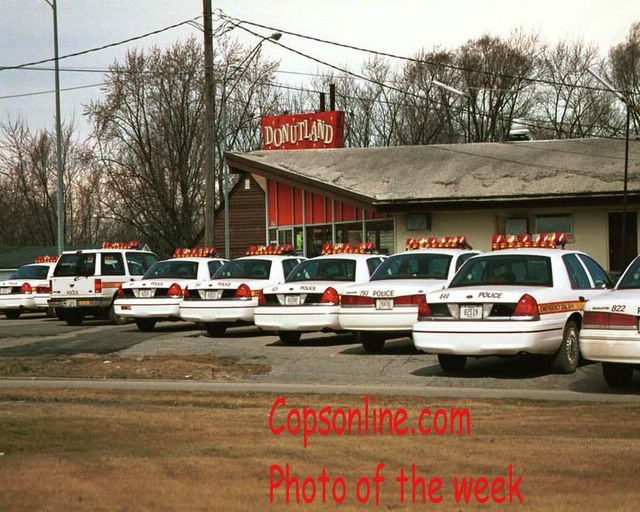Date: Sunday, February 19, 2006
By: Michael H. Cottman
A new generation of black elected officials and civil rights activists will meet in Gary, Indiana next month to discuss a national strategy for black economic empowerment 34 years after the National Black Political Convention, where an unprecedented group of black leaders convened in Gary to initiate political change.
A coalition of black leaders will gather again in the city from March 9 to 12 to create a long-term economic plan for all black Americans, regardless of income status or political affiliation.
"The gathering in Gary affords the opportunity to return to the site of a historic gathering to create another moment in the journey of our people," Bruce S. Gordon, president of the NAACP, told BlackAmericaWeb.com last week. "Focusing on economic equality is my priority. Any attempt to establishing an agenda for action is worth the trip."
In 1972, more than 4,000 black activists assembled in Gary for what became one of the largest black political conventions in U.S. history. At that time, according to organizers, only 16 blacks were members of the U.S. Congress, less than 900 were state and city officials, and there was no national strategy for gaining further political empowerment.
Today, there are more than 16,000 black elected officials, holding office at every level, in almost every state. In the past 34 years, Americans have witnessed one black elected as governor of Virginia; three blacks elected lieutenent governor; two elected to the U.S. Senate; 47 newly elected members to the U.S. House of Representatives -- and numerous big-city mayors, state legislators and county and regional elected officials.
Organizers say confirmed conference participants include political activists such as Harry Belafonte, Dick Gregory, former U.S. Labor Secretary Alexis Herman, the Rev. Jesse Jackson, former SCLC leader Rev. Joseph Lowery, Rev. Al Sharpton, SCLC President Charles Steele and Mary Frances Berry, former Chair of the U. S. Commission on Civil Rights. Others include General Motors Vice President Roderick Gillum, Joseph Leonard, executive director of the National Black Leadership Forum, and Mary Coleman, chair of the National Black Caucus of State Legislators.
The conference comes as some blacks are questioning the role of today’s black leadership mega-meetings and whether such grand-scale conferences resonate with blacks who are struggling to make ends meet, particularly those who are still displaced by Hurricane Katrina. Some say smaller, manageable neighborhood meetings are more realistic strategies for addressing the black community’s tremendous needs.
But Ron Walters, a political science professor at the University of Maryland and an organizer for the meeting in Gary, said the gathering in "this historic venue" has broad implications for black Americans.
"It could service the mobilization for the coming mid-term congressional elections and beyond, and give another push to the response to the Katrina disaster," Walters told BlackAmericaWeb.com.
Next month’s convention, which will likely draw several thousand participants, was organized by Bill Lucy, one of the leaders of Coalition of Black Trade Unions and the international secretary-treasurer of the 1.4 million-member American Federation of State, County & Municipal Employees.
"The broad aim of this convention is to bring together the collective wisdom, creativity and resources in our community, to map out a bold economic agenda that will unite us in communities of color across the nation," Lucy said in a statement.
Lucy said many leaders in the labor movement and the Democratic Party have taken black workers and black voters for granted, while denying them access to resources to fully mobilize their communities. "We must think nationally and act locally," Lucy said.
Donna Brazile, a Democratic political consultant, told BlackAmericaWeb.com that "if this convention helps to establish principles for black political unity, I will strongly support it."
Some black conservatives say they embrace the concept of next month’s gathering, but said the conference should be more politically inclusive.
"There is some merit to these types of meetings in that they promote inclusion and unity among leaders of different organizations, who in theory, can go back and mobilize the black community," Alvin Williams, president of the conservative Black America’s Political Action Committee, told BlackAmericaWeb.com.
"One concern with many of these gatherings is that they are inherently partisan in nature and scope," Williams said. "For true unity and to maximize our political leverage, a conference of unity should be inclusive of African-American elected officials and leaders from across the political spectrum."
Craig Kirby, director of the office of the Vice Chairs for the Democratic National Committee, told BlackAmericaWeb.com the meeting is "a great reunion" for black leaders, but questions whether the event will actually uplift disadvantaged black Americans who are trying to improve the quality of their lives.
"I’ve never seen a mass meeting do anything for a movement," Kirby said. "I’m not taking anything away from these people or their accomplishments because I’ve worked for some of them, but I think we’re better served by going back to basics with neighborhood block meetings. If you can get 15 people on your block to do something, that’s better than 400 people doing nothing."
Organizers say the "Back to Gary" movement underscores the role of black labor that has historical ties to A. Philip Randolph’s call for a national march for jobs in 1963. Randolph’s efforts, according to organizers, resulted in the historic March on Washington in 1963.
"This meeting presents a rare opportunity for us to talk among ourselves," former Gary Mayor Richard Hatcher said in a statement. "The shocking disaster of Hurricane Katrina is a sobering reminder that poverty and racism still takes a deadly toll on our communities."




